The Punjab Police released the Punjab Police Constable Admit Card 2025 on its website. Candidates who have applied can now download their hall tickets and appear for the second phase of the exam starting from 19 May to 31 May 2025. The call letter includes important details such as the exam date, reporting time, and exam duration. For more information about the constable recruitment, candidates should refer to the full article.
Punjab Police Constable Exam 2025
The Phase 1 Computer-Based Test (CBT) of the Punjab Police Constable Exam 2025 was held from 09 May to 11 May 2025. After conducting the first phase of the exam, the Punjab Police will conduct the second phase of the constable exam, which will be held from 19 May to 31 May 2025. And, the last and final phase of the exam is held on 01 June to 08 June 2025.
Punjab Police Constable Answer Key 2025
Punjab Police Constable Final Result 2025
Punjab Police Constable Cut Off 2025
Punjab Police Constable Mock Test 2025
As the exam date for Punjab Police Constable posts approaches, Punjab Police has activated the official exam mock test link on its official website. Candidates who are preparing for these constable posts and will appear in the exam should take the mock test so that they can get familiar with the online exam process and feel comfortable taking the exam. To get the mock link for the Punjab Police Constable exam, candidates have to visit the official website or can get the direct link from the given article.
Punjab Police Constable Sample Paper 2025 PDF
Are you preparing for the Punjab Police Constable Exam 2025? If yes, then you’re in the right place! To help you get a strong start in your preparation, we’ve provided a direct link to download the official-style Punjab Police Constable Sample Paper 2025 in PDF format. Practicing with sample papers is one of the best ways to understand the exam pattern, improve speed, and boost your confidence. This sample paper includes important questions, covers the latest exam syllabus, and is designed to simulate the real exam experience.
Punjab Police Constable Recruitment 2025 Out
Punjab Police has announced 1,746 Constable vacancies, and with the application process closed, candidates should focus on preparation. The Punjab Constable Exam 2025 is held in May 2025. Stay updated with official notifications, follow a structured study plan, revise key topics, practice mock tests, and improve speed and accuracy. Stay confident, consistent, and dedicated—success is within reach!
| Punjab Police Constable Recruitment 2025: Key Highlights | |
| Recruiting Organisation | Punjab Police (PP) |
| Post name | Constable |
| Vacancies | 1746 |
| Eligibility Criteria | 10+2 or equivalent |
| Age Limit | 18-44 |
| Application Start Date | 21 February 2025 |
| Application Closing Date | 13 March 2025 (Till 11:55 pm) |
| Punjab Police Constable Admit Card 2025 | 29 April 2025 Onwards |
| Exam Date | 04 May 2025 Onwards |
| Selection Process | Written examination, PET & PMT, Document verification |
| Official Website | https://punjabpolice.gov.in/ |
Punjab Police Notification 2025 For Constable Posts
The Punjab Police has released the Punjab Police Notification 2025 for constable vacancies on its official website @punjabpolice.gov.in. It includes details like the application process, eligibility criteria, selection procedure, and salary. Candidates can visit the website or use the direct link provided in the article to download the Punjab Police Constable Recruitment 2025 Notification PDF.
Punjab Police Recruitment 2025 Vacancy Details
The recruitment for Punjab Police constable has announced 1,746 constable vacancies, including 1,261 in the District Cadre and 485 in the Armed Police Cadre. For category-wise details, candidates must check the vacancies table that has been given below:
For the District Police Cadre
| Punjab Police Constable Recruitment 2025: District Police Cadre | ||
|---|---|---|
| Category | No. of Vacancies | Vacancies Reserved for Women |
| General/Open/Unreserved | 533 | 151 |
| Scheduled Castes Balmiki/Mazhbi Sikhs, Punjab | 130 | 52 |
| Scheduled Castes Ramdasia & Others, Punjab | 130 | 52 |
| Backward Classes, Punjab | 130 | 52 |
| Ex-Serviceman (General), Punjab | 91 | 52 |
| Ex-Serviceman Scheduled Castes Balmiki/Mazhbi Sikh, Punjab | 26 | 00 |
| Ex-Serviceman Scheduled Castes Ramdasia & Others, Punjab | 26 | 00 |
| Ex-Serviceman Backward Classes, Punjab | 26 | 00 |
| Wards of Police Personnel | 26 | 08 |
| Economically Weaker Sections, Punjab | 130 | 39 |
| Wards of Freedom Fighters, Punjab | 13 | 04 |
| Total | 1261 | 410 |
Punjab Police Recruitment 2025 Important Dates
Candidates applying for the Punjab Police Constable post should stay updated on key dates. To help track important deadlines, refer to the table below for complete details and avoid missing any crucial events.
| Punjab Police Recruitment 2025: Important Dates | |
| Notification Release Date | 12 February 2025 |
| Application Start Date | 21 February 2025 |
| Application End Date | 13 March 2025 |
| Punjab Police Constable Exam Start Date | 04 May 2025 onwards |
| Admit Card Release Date (Phase 1) | 29 April 2025 |
| Phase 1 Exam Date | 4th May to 15th May 2025 |
| Admit Card Release Date (Phase 2) | 16 May 2025 |
| Phase 2 Exam Date | 19th May to 31st May 2025 |
| Admit Card Release Date (Phase 3) | 25 May 2025 |
| Phase 3 Exam Date | 1st June to 8th June 2025 |
Punjab Police Constable Online Application Form 2025
The Punjab Police Constable Recruitment 2025 application process has ended, with the online portal closing on 13th March 2025. Candidates who have successfully applied should now focus on preparing for the upcoming exam. Utilize the remaining time effectively to excel in the examination. Stay tuned for further updates on the exam schedule and other important details.
Punjab Constable Application Fees 2025
Applicants must submit the prescribed application fee along with the examination charges to complete their registration for the Punjab Police Constable Recruitment 2025. The official notification outlines the category-wise fee structure, which is provided in detail below. Fees not paid or incomplete applications will be canceled.
| Punjab Constable Recruitment 2025: Application Fees | |||
|---|---|---|---|
| Categories | Application Fee | Examination Fee | Total Fee |
| General | Rs. 500 | Rs. 650 | Rs. 1150/- |
| Ex-Servicemen (ESM) of Punjab, Linear Descendants of ESM | Rs. 500 | NIL | Rs. 500/- |
| SC/ST/BC of All States & OBC of Punjab State Only | Rs. 500 | Rs. 150 | Rs. 650/- |
| Economically Weaker Sections (EWS) | Rs. 500 | Rs. 150 | Rs. 650/- |
How to Apply for the Punjab Police Application Form 2025
Here, we provide step-by-step instructions to apply for the Punjab Police Constable Recruitment 2025. These steps are designed to assist candidates unfamiliar with the application process on the official website. Follow the guide below for a smooth and hassle-free application experience.
- Go to the Punjab Police’s official website at https://www.punjabpolice.gov.in/.
- Click on the Punjab Police Recruitment 2025 link available on the homepage.
- Enter the required details such as your name, contact information, and email ID to create a new user account.
- After successful registration, you will receive a User ID and Password on your registered mobile number or email.
- Use the provided credentials to log in and upload the necessary documents, photographs, and signatures as specified in the application form.
- Make the payment based on your category through the available online payment modes.
- After successful payment, submit your application. Your registration for the Punjab Police Constable post will be confirmed.
- Candidates should keep a printed copy of the application form for future reference.
Important Documents Required For Punjab Police Application Form 2025
Candidates applying for the Punjab Police Constable vacancy on the official website must submit all required documents while filling out the Application Form 2025. To assist applicants, we have provided a list of essential documents needed for the application process on the Punjab Police website.
- Scanned Photograph & Signature (4.5 cm x 3.5 cm)
- 10th & 12th Class Mark Sheets and Certificates
- Any Two Identity Proofs (Aadhar Card, PAN Card, Voter ID, Passport, Driving License)
- Category Certificate (SC/ST/OBC/EWS/ESM, if applicable)
- NOC (No Objection Certificate) (For employed candidates, if applicable)
- Other Relevant Documents (As per eligibility requirements)
Punjab Police Constable Salary
Before applying for the Punjab Police Constable post, candidates should be aware of the Punjab Police Constable Salary. The basic pay for Punjab Police Constables in 2025 starts at ₹19,900/-. In addition to the basic salary, selected candidates will receive various allowances, benefits, and perks as per government regulations. These include medical allowances, travel allowances, and other benefits provided by the Punjab Police. Understanding the salary and benefits package is essential for candidates to make an informed decision before applying for the position.
Punjab Police Previous Year Paper
Aspirants preparing for the Punjab Police Constable Recruitment must adopt a strategic study plan to enhance their chances of success. One of the most effective methods to boost preparation is by practising Punjab Police Constable Previous Year Papers. These papers serve as a crucial resource for understanding the exam pattern, question trends, difficulty level, and key topics frequently appearing in the test. To stay ahead in the competition, candidates should make solving previous years’ papers a core part of their study routine.
Punjab Police Constable Eligibility Criteria
Candidates must ensure they meet the eligibility criteria for the Punjab Police Constable before applying. The recruitment authority has set specific requirements for a fair selection process. These Punjab Police Constable Eligibility Criteria conditions typically cover aspects such as age limit, educational qualifications, physical standards, and nationality, among others.
Age Limit
- Minimum Age: As of January 1, 2025, candidates must be at least 18 years old.
- Maximum Age: The upper age limit for applicants is 28 years as of January 1, 2025.
Educational Qualification
To be eligible for the Punjab Police Constable post, candidates must have completed their 12th grade (10+2) from a recognized board or university. The detailed educational requirements are as follows:
- 10+2 or its equivalent from a recognized board/university.
- For ex-servicemen, the minimum qualification is matriculation (10th grade).
- Candidates must have passed Matriculation with Punjabi as a subject or an equivalent
- qualification recognized by the Punjab Government.
Nationality
Applicants must be Indian citizens and should not hold green cards, permanent citizenship, or residency in any other country. Only candidates with Indian citizenship are eligible to apply for the Punjab Police Constable Vacancy 2025.
Physical Standards
The required physical standards for male and female candidates differ. Female candidates must have a minimum height of 5 feet 2 inches (157 cm).
Punjab Police Constable Selection Process
The selection process plays a vital role in assessing a candidate’s eligibility and suitability for the position. The Punjab Police Constable Selection Process generally consists of multiple stages, including a written examination, a physical efficiency test, and document verification, ensuring a thorough evaluation. For the Punjab Police Constable Recruitment 2025, the selection procedure is expected to comprise the following phases:
- Stage I: Computer-Based Test or Written Test (Usually Computer-Based Test)
- Stage II: Physical Screening Test (PST) and Physical Measurement Test (PMT)
- Stage III: Document Scrutiny
Punjab Police Constable Physical Test Standards 2025
The Punjab Police Constable Physical Test is an essential part of the selection process, designed to evaluate candidates’ physical fitness and endurance. The selection process includes two key stages: the Physical Measurement Test (PMT) and the Physical Screening Test (PST). Male candidates must have a minimum height of 5 feet 7 inches, while female candidates need at least 5 feet 3 inches. For more details, candidates should refer to the full Punjab Police Recruitment 2025 article.
Punjab Police Physical Screening Test
Candidates who qualify for the Punjab Police Constable written exam will proceed to the Physical Screening Test. This article covers all test parameters as per the official 2025 notification.
For Male Candidates
There are given the following parameters are given related to the Male Candidates for Punjab Police Constable Physical Screening Test.
| Parameters | Ex-servicemen less than 25 years | No. of Chances | Ex-servicemen for more than 35 years | No. of Chances |
|---|---|---|---|---|
| Race | 1600 meters in 6 min 30 seconds | 1 Chance | 1400 meters in 12 minutes | 1 Chance |
| Long Jump | 3.80 meters | 3 Chances | – | – |
| High Jump | 1.10 meters | 3 Chances | – | – |
| Full Squats | – | – | 10 Full squats in 3 minutes | 1 Chance |
For Female Candidates
There are given the following parameters are given related to the Female Candidates for the Punjab Police Constable Physical Screening Test.
| Parameters | Less than 35 years of age | No. of Chances | More than 35 years of age | No. of Chances |
|---|---|---|---|---|
| Race | 800 meters in 4 min 30 seconds | 1 Chance | 800 meters in 6 minutes | 1 Chance |
| Long Jump | 3.00 meters | 3 Chances | – | – |
| High Jump | 0.95 meters | 3 Chances | – | – |
For Ex-Serviceman
There are given the following parameters are given related to the Ex-serviceman Candidates for the Punjab Police Constable Physical Screening Test.
| Gender | Parameters | Duration |
|---|---|---|
| Male | Race (1 Chance) | 1400 meters in 12 min |
| Squats (1 Chance) | 10 full squats within 3 min | |
| Female | Race (1 Chance) | 800 meters in 6 min |
Punjab Police Constable Syllabus
To succeed in the Punjab Police exam, candidates must thoroughly understand the Punjab Police Constable Syllabus. Aspiring Constables should thoroughly review the syllabus, as it outlines key topics and mark distribution for the exam. Although the official syllabus is yet to be released, it is expected to follow the previous year’s pattern. Candidates should focus on core subjects to enhance their preparation and improve their chances of success.
| Punjab Police Constable Exam Pattern 2025 | |||
| General Awareness | 35 | 35 |
120 Minutes
|
| Quantitative Aptitude and Numerical Skills | 20 | 20 | |
| Metal Ability and Logical Reasoning | 20 | 20 | |
| Language Test (English and Punjabi) | 20 | 20 | |
| Digital Literacy and Awareness | 5 | 5 | |
| Total | 100 | 100 | |
| Paper 2 Punjabi (Qualifying in Nature) | |||
| Mandatory Qualifying Paper of Punjabi Language | 50 | 50 | 60 Minutes |
Why is this Punjab Police Constable Batch necessary For Selection?
The Punjab Police Constable Recruitment 2025 Live Batch by Punjab Adda247 is a great resource for aspirants aiming to join the Punjab Police. It follows the official syllabus and exam pattern, and is taught by expert faculty covering all important subjects.
Enrolling in this batch offers expert guidance, smart strategies, and strong subject clarity, boosting your preparation and success chances. Check out the key benefits of this batch below.
- 210+ Hours of interactive Live Classes
- Recorded Videos are available 24/7 for Quick Revision.
- Strategy session on how to attempt the exam.
- Counselling Sessions by Expert Faculties
Punjab Police Constable Exam Analysis 2025
As per the Punjab Police Constable Exam Analysis 2025, the first shift of the Constable Exam was successfully conducted, and after that, it received a mixed response from candidates. The overall difficulty level was easy, with sections like General Awareness and Reasoning being slightly time-consuming. To get more information about today’s analysis of the constable exam, candidates can click on the given link, which redirects to the exam analysis article.
| Also check |
| Punjab Police Constable Final Result 2024-25 |
| Punjab Police Constable Cut Off 2025 |

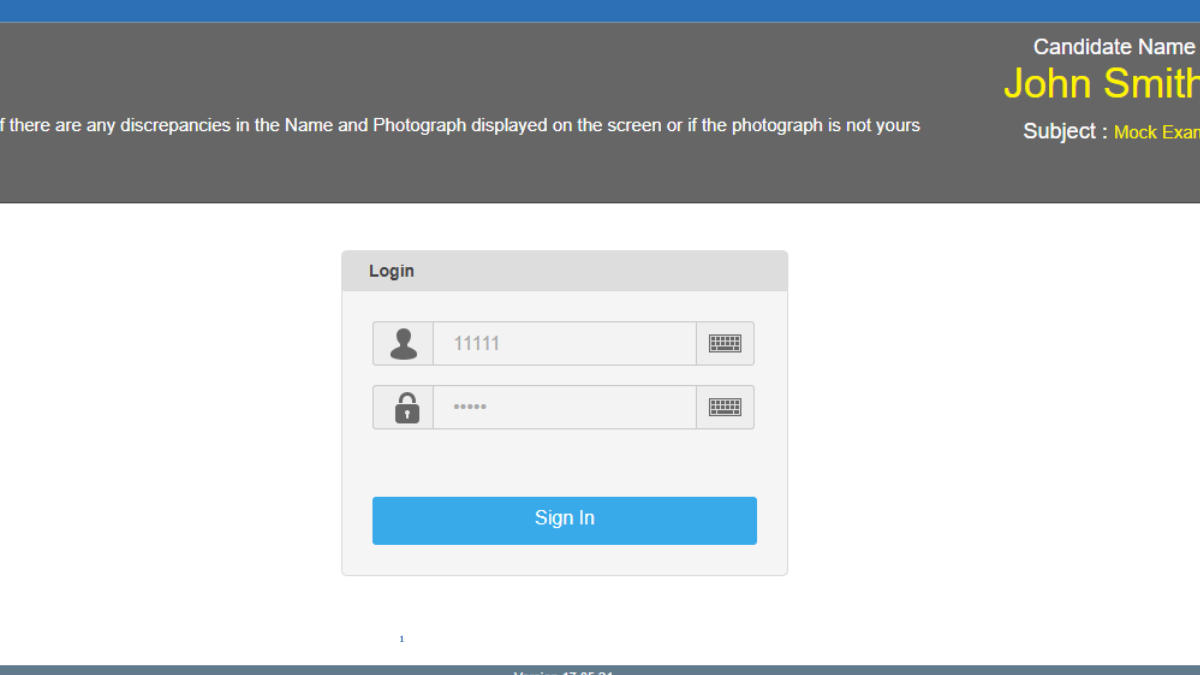
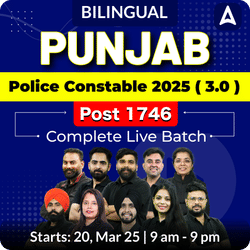


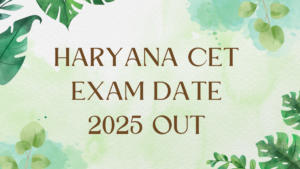 HSSC CET Exam Date 2025 Out @hssc.gov.in...
HSSC CET Exam Date 2025 Out @hssc.gov.in...
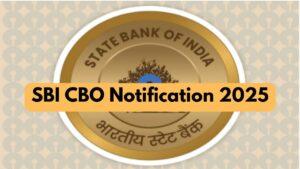 SBI CBO Exam Date 2025 Out for 2964 Vaca...
SBI CBO Exam Date 2025 Out for 2964 Vaca...
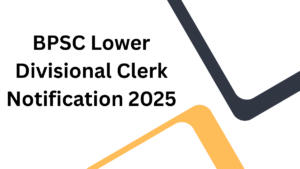 BPSC LDC Recruitment 2025 Out, Apply Onl...
BPSC LDC Recruitment 2025 Out, Apply Onl...
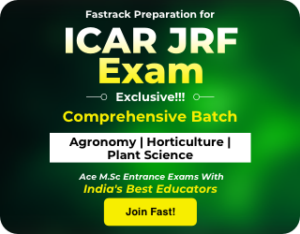
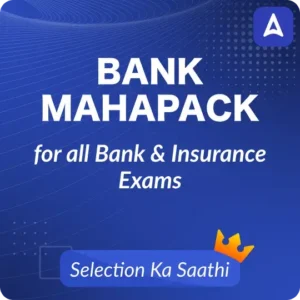
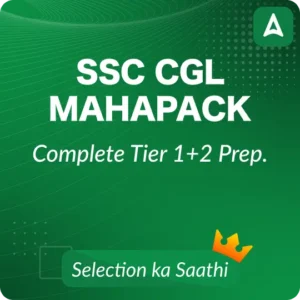
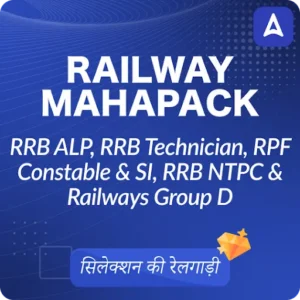
 Adda247 Job portal has complete information about all Sarkari Jobs and Naukri Alerts, its latest recruitment notifications, from all state and national level jobs and their updates.
Adda247 Job portal has complete information about all Sarkari Jobs and Naukri Alerts, its latest recruitment notifications, from all state and national level jobs and their updates.